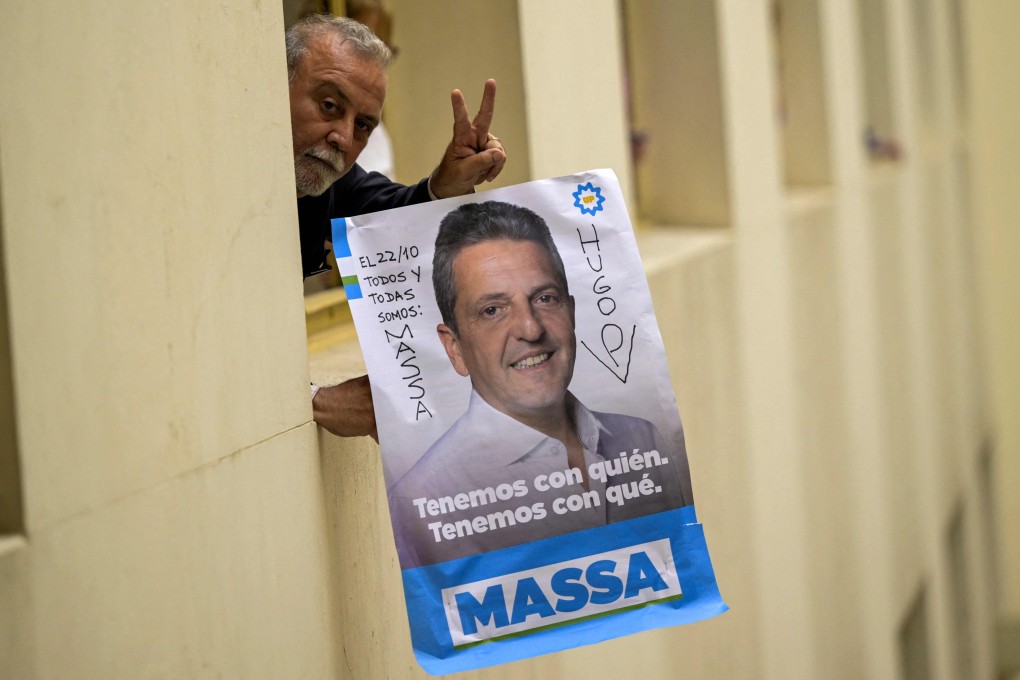Opinion | Why Argentina’s presidential run-off could rock China’s relations with Latin America
- While Sergio Massa won the first round of Argentina’s presidential election, the chance of far-right Javier Milei winning a run-off has dark implications
- Milei has advocated a variety of radical positions, including severing ties with China, that threaten to upend Argentina’s economy and diplomacy

It didn’t take long for my former classmate to express his support for Milei. Coming from the deeply conservative north, an area divided between traditional landowners and mining ventures, his position wasn’t surprising. What was striking, however, was his employment in the public sector, which Milei has vowed to gut. In the end, he admitted he voted for the candidate to “set the cat among the pigeons”.
This fervour, coupled with the strong backlash against the far-right surge, encapsulates the sentiments many Argentinians held going into the polls last weekend. Surprisingly, the Peronist Massa – a member of the dominant political movement – received 36.6 per cent of the vote on Sunday while Milei maintained his primary election performance of around 30 per cent. These figures pave the way for a run-off on November 19.
In just three months of presidential campaigning, relations with China have become a central issue in political debates, spurred by Milei’s advocacy for severed ties. For the first time, Sino-Argentine relations are under the spotlight, with divided opinions on its role in economic development and national security.

.jpg?itok=Sfnz7QjB&v=1698126257)